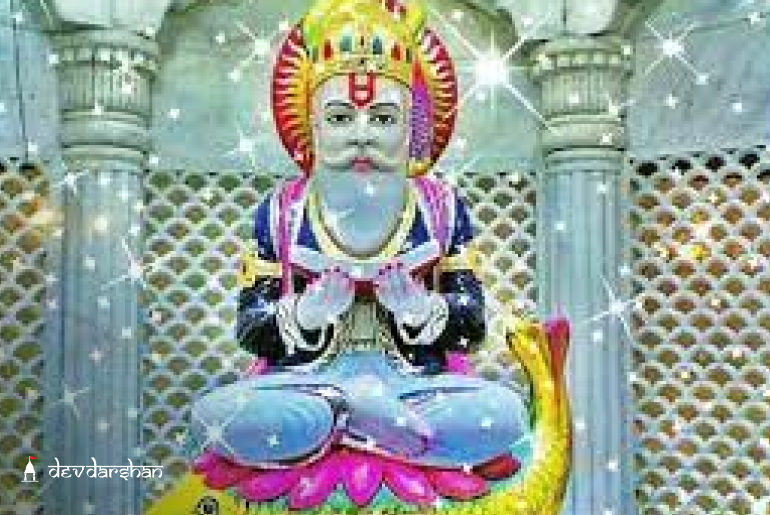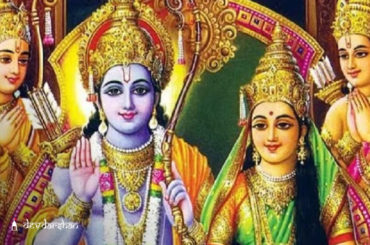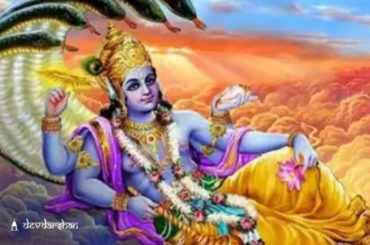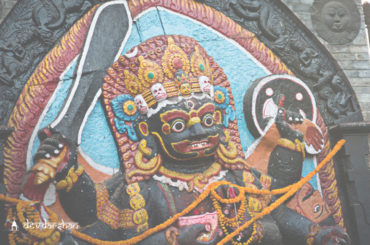Cheti Chand
India is a colourful country filled with a diversity of various religious backgrounds and hueful festivals celebrated across the length and breadth of the sub-continent. Among the various festivals, Cheti Chand is one such festival which is celebrated by the Sindhi community. Traditionally, Sindhi New Year’s Day is celebrated to commemorate the birthday of Sindhi Patron Saint Jhulelal.
Cheti Chand is an important festival celebrated by the Sindhi community, which marks the beginning of the Hindu New Year. The festival usually falls in late March or early April and is celebrated on the second day of the Chaitra month of the Hindu calendar.
Based on the lunisolar Hindu calendar, Cheti Chand is celebrated on the first day of Chet, the first month of the year. The Sindhi New Year, Cheti Chand, falls on the same day as Gudi Padwa for Marathis. Cheti Chand is the birthday of Varun Dev (Water God) Sai Uderolal, also known as Jhulelal.
So, let’s get to know more about the Cheti Chand 2023 Date, interesting facts and rituals of this festival.
Cheti Chand 2023: Date and Timings
This year, Cheti Chand is celebrated on Wednesday, March 22, 2023
- Pratipada Tithi Begins: 10:52 p.m on March 21, 2023
- Pratipada Tithi Ends: 08:20 p.m on March 22, 2023
- Cheti Chanda Muhurat: 06:33 p.m to 07:16 p.m
Also Read: Date and Timings of Important Hindu Festival Holi
Significance of Cheti Chand
Cheti Chand holds great significance for the Sindhi community as it is believed to be the birth anniversary of the Ishtadeva of the Sindhi community, Jhulelal. Jhulelal is a revered saint who is believed to have preached the message of love, unity, and peace and is considered the patron saint of the Sindhi community.
The festival is celebrated with great fervour and enthusiasm and is marked by various rituals and festivities, including prayers, offerings, and feasts. People dress up in new clothes and visit temples to offer their prayers and seek blessings. The day is also marked by cultural programs, music, dance, and other festivities.
Cheti Chand is not just a religious festival but also a symbol of Sindhi culture and identity. It is a time for the Sindhi community to come together, celebrate their culture, and renew their commitment to their traditions and values. Therefore, Cheti Chand is of immense importance to the Sindhi community, and the festival is celebrated with great joy and enthusiasm by Sindhis all over the world.
Cheti Chaand Rituals
On this new year of Sindhis, Jhulelal is worshipped. Various rituals are carried out to mark the beginning of the new year and also for the worship of the Lord. So, let’s find below the rituals carried out on the day of Cheti Chand.
- On this day, most Sindhis follow a ritual of taking their Behrana Sahib (an oil lamp, crystal sugar, cardamom, grapes, and Akha) to a nearby river or lake.
- They always have a Jhulelal idol with them.
- Jyot Jagan is lit, which is a five-wicks wheat flour lamp.
- Sindhis sing Pallav to invoke and seek blessings of Lord after Behrano Saheb is offered to water in a lake or river and then they share the prasad/Bhog.
- Charitable events are carried out, such as clothing donations and food distribution to the poor and vulnerable.
- Families and relatives come together and have a feast of nutritious meals.
- And finally, people greet one another with the phrase “Cheti Chand Jyon Lakh Lakh Wadayun Athav.”
What is the Legend Behind the Celebration of Cheti Chand?
The legend related to Cheti Chand is associated with the birth and teachings of Jhulelal, the patron saint of the Sindhi community. According to the legend, there was a ruler named Mirkshah who was a tyrant and oppressed the people of Sindh. He wanted to force his religion on the people and, as a result, there was much unrest and turmoil in the region.
One day, a group of Hindu and Muslim holy men, led by a fakir named Lal Shahbaz Qalandar, came together to pray for a solution to the problem. In response to their prayers, a divine child appeared, who was later named Uderolal or Jhulelal. The child was raised by a childless couple, and as he grew up, he gained a reputation for his wisdom and miraculous powers.
When Jhulelal grew up, he set out to challenge the tyranny of Mirkshah and spread the message of love, unity, and peace among the people of Sindh. He taught the people to live in harmony and respect each other’s beliefs, and his teachings gained a following among both Hindus and Muslims.
Eventually, Jhulelal challenged Mirkshah to a spiritual duel, which he won with his divine powers. Mirkshah was converted to Jhulelal’s teachings, and peace was restored to Sindh. From that day on, Jhulelal became the patron saint of the Sindhi community, and his birth anniversary came to be celebrated as Cheti Chand.
Cheti Chand is thus not only a celebration of the Sindhi New Year but also a commemoration of Jhulelal’s teachings and his role in bringing peace and harmony to the people of Sindh.
Different Celebrations of Cheti Chand
Chaliho Saheb
The most common and widely practised way is to worship the ‘water god’ for 40 days. Currently, it is known as Chaliho (Forty) Saheb and it is celebrated accordingly. After forty days of Chaliho, the Devotees of Jhulelal celebrate the day as ‘thanksgiving’.
Baharana Sahib
Another important custom observed on this day is a public procession known as Baharana Sahib. Baharana Sahib is consists of Jyot, Sugar Candy, Phota, Fruits and Akha. A bronze pot (kalsh) containing a coconut is covered by cloth, flowers, leaves and the Jhulelal Murti (Idol) of the deity. ‘Chhej’ – a popular Sindhi folk dance – is performed by Sindhis of all ages during the Bahrana Sahib procession. Baharana Sahib is taken to a nearby river or lake on this day.
After offering ‘Akhoa (good quality rice and sugar) to the Water God (Jal Devta), ‘Sesa’ is distributed among the Devotees, when they reach the river (water god). This tradition comes from an event in the life of Jhuelal.
Cultural Programs
In order to express the rich cultural heritage of Sindhis, some cities and towns also organise various cultural programs on this day and inspire youth to promote it. All organisations and institutions of Sindh celebrate this festival with great joy, enthusiasm and grandeur.
Worship of Jhulelal
Business class and merchants open new accounts on this day. Sindhis also keep their shops closed and business activities on this day and gather at a place or community hall (Panchayati Hall) or Jhulelal temple where Jhulelal is worshipped after singing devotional songs.
In a Nutshell,
Cheti Chand is Sindhis’ festival of joy, laughter and celebration. We from the team of DevDarshan wish you and your families a happy new year and Cheti Chand. May this Cheti Chand bless you with new energy, happiness, wealth and success.
Also Read: Gudi Padwa that Falls on Cheti Chand
Check out various Online Puja and services provided by DevDarshan here and get your bookings done in one click. If you want to know more about Indian culture, Indian Temples, Pujas and festivals, then download the DevDarshan App. Don’t forget to share this blog if you liked.




